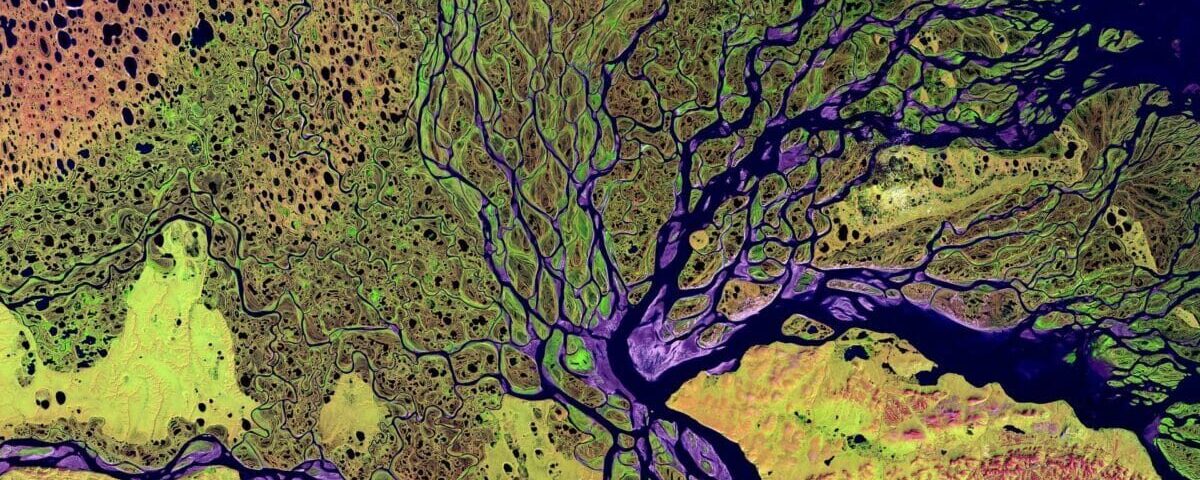
Mother Earth Day: An environmental scientist's advice for taking care of the planet
22 of April of 2022
We lead such frenetic lives, often on auto-pilot, that from time to time, we must stop and ask ourselves, “Am I making the best decisions for myself and for the planet?” Today, International Mother Earth Day, is a good time to take a look at the environmental factors that can make a difference in our day to day lives and therefore raise awareness of the importance of making responsible decisions.
This year’s Mother Earth Day is the first to be celebrated as part of the UN’s Decade on Ecosystem Restoration. As the UN points out, the health of our ecosystems is directly related to the health of the planet and its inhabitants. This day reminds us of the importance of striking a balance between our natural ecosystems and our way of life. It’s essential for us to learn to live more sustainably and respectfully with regard to the planet in order to improve all the aspects that affect the environment.
What does it mean to be an environmental scientist?
My first memories from my childhood were already a clear indicator of what would become my passion and profession years later. I remember being particularly interested in doing outdoor activities and enjoying nature. As I grew up, my likes became a way of living, especially once I decided to study Environmental Sciences for my bachelor’s degree and to become an environmental scientist.
But whenever I’m asked about my profession, it sparks a degree of confusion. What does an environmental scientist do, anyway? In the 30 years that have passed since this degree’s creation, we still generally don’t know very much about this profession, even as it carries more and more weight in society. If we environmental scientists have anything to be proud of, it’s how environmental education and awareness have grown in all areas over the years.
Surely you know at least one person with an environmentalist spirit in your inner circle. Many of us grew up with worries about the ozone layer; we’ve all given our relatives gifts with recycled materials (such as using the infamous roll of toilet paper); we’ve internalized the importance of recycling in our homes.
In addition to being a volunteer with the Association of Environmental Scientists of Madrid and then the Association of Environmental Scientists of Madrid, I help companies large and small focus their business strategy to move towards the field of sustainability so that they integrate initiatives and projects that help the planet. In practice, though, each of us can make decisions in our day-to-day lives that may seem like small changes or initiatives but which can mean a lot to our planet.
Want some tips to support sustainable development and limit environmental impact?
- Commit to small producers
You can shop in traditional food markets or even find out about new shopping alternatives in your neighborhood. Nowadays, producer association initiatives are increasingly being developed. These let you purchase high-quality food from home, filling your shopping cart without any difficulties.
Take any opportunity to enjoy small producers: whenever I travel in summer, I shop at traditional bakeries and from the garden of the little shop on the corner. Prices are as good as at big-name stores, and besides, these sorts of businesses get most of their income for the rest of the year during the summer.
- Long live second-hand!
The second-hand market is no longer what it used to be. Gone are the times when second-hand stores had next-to-nothing, and what they did have was in poor condition. Now, we have different platforms where we can find a host of items: any style of clothes, furniture, toys… If you prefer the shopping experience, there are more and more physical stores, such as second-hand best-seller books.
You can also find out if the brands you like have second-hand programs and how they do this. Some furniture stores sell used items that are in good condition at highly competitive prices.
- Take some time and try to understand your appliances and electronics
Let’s not fool ourselves. I’m the first not to read all those pages of instructions in tiny fonts when I buy a shiny new appliance. I will confess, I’ve been learning interesting things that help limit our water and energy consumption: use shorter washing cycles at lower temperatures, depending on the clothes being washed (e.g. sheets); think about where the best place for food is in the fridge so it lasts longer; or use the air conditioning wisely, as much as it is misunderstood as we end up pressing all the buttons out of frustration while trying to lower the temperature.
- Change the temperature of your showers
We all like to feel like we’re in a sauna, but a temperature that’s too high can not only lead to high energy expenditures but also damage the lipid layer of the skin by dehydrating it.
- Drive efficiently and safely
Let’s face it: we’re not racecar drivers. Safety must always come first, along with a proper speed within the established limits. Follow efficient driving measures like progressive braking or staying in a suitable RPM range to prevent unnecessary fuel consumption.
- Eat a balanced seasonal diet
I’d love to have a good Argentine veal T-bone (perfectly cooked) with Roquefort sauce and strawberries for dessert every day of the year. But come on: this cannot be said to be sustainable. Enjoy seasonal fruits and vegetables and eat them at the best time of year, keeping a balanced diet with different sources of protein, carbohydrates, and fats.
- Think about what you eat
Don’t believe everything you see on social media, and do your homework. Remember that social media supports a system of capitalist production that is obviously not sustainable: you don’t need to travel to Bali to have a vacation, nor do you need to buy whatever’s the latest fashion. A holiday can be even more rewarding in a small-town cottage if you are in good company, even without the splashy panoramas. Sure, there won’t be any rice paddies to post pictures of, but what’s more important than that are the experiences we have in our surroundings and the time we spend with those around us.
These are just a few small examples we can incorporate into our day-to-day lives, but we don’t need to be the best in class. Caring for the environment starts with small steps that each of us can incorporate as much as we can.
Let’s stop with the catastrophic messages that nothing can be done and we’re doomed. Over the past decade, work has continued on global environmental protection policies. Both developed and developing countries have decreased their dependence on fossil fuels, and new technologies are beginning to emerge that we could only dream of just a few short years ago, such as hydrogen vehicles.
If we’ve learned anything these last few years, it’s that we’ve moved forward, so let’s prove that the worst-case scenarios are just predictions – not our future.





There are no comments yet